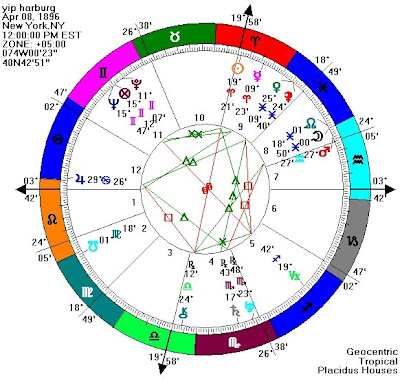We saw
Elysium at the cinema on Monday evening. The movie was mentioned in an earlier post,
HERE. I'll try not to include too many spoilers, but without a few I can't say what I want to say, so if a passing reader intends to see the movie, do beware of what follows.
I didn't hate the film, but didn't love it either.
Elysium had good ideas, not new - but then, what is? The film was written, co-produced and directed by Neill Blomkamp and stars Matt Damon and Jodie Foster.
The storyline, used before in a variety of ways in novels and in movies, in this instance is delivered with all the visual technological wonders now available. This isn't always an advantage, it can simply encourage producers and directors to over-egg the pudding, which is basically what happened in
Elysium. The film was designed to play to the action and fight-loving blockbuster-loving filmgoers, not the quieter, more curious among us.
Squandered opportunity - that's what
Elysium and its embedded allegory is.
To be fair, the subject matter, dealt with in any detail, with time for proper background and character development, with dialogue showing more depth than yer average graphic novel, would be more suitable material for a TV mini-series of some three or four 2-hour episodes. The movie had just less than 2 hours to tell its tale, so a lot had to be left to the imagination, and several gaping plot-holes had to be left, in the hope that the mayhem of fight sequences will mean that audiences' brains will become numb enough not to notice.
Without the overlong fight scenes, the last one had me looking at my watch, just wishing and willing it to end, perhaps younger filmgoers would not even bother to see
Elysium, and they'd miss the allegorical warning embedded in it. As husband pointed out, perhaps this way a little of the allegory's message will stick, even overlaid as it was by all the mayhem. I hope so, but doubt it.
As an allegorical fable or parable set in Los Angeles in 2154, a tale about the haves and have-nots, it could be seen both as a mirror of what we now term the 1% versus The Rest of Us in the USA and elsewhere, or using a wider lens, the third world versus the developed world. Both views work equally well.
Matt Damon plays Max Da Costa, who is, to carry on the Greek mythology motif from the space station's name, a 22nd century Hercules figure. He's confronted by an Herculean task, initially via the motivation to save his own life after suffering massive radiation poisoning. He is aided by a techno-heavy exoskeleton suit and brain assistance (sorry if those terms aren't the correct ones!) He needs to reach the idyll that is space station Elysium, a living environment for the uber-weathy, where as part of its pseudo idyll, crime, poverty and all other nasties simply do not exist. Earth has become a devastated shell: hot, over-populated, disease-ridden, its sorry inhabitants used as slaves to supply the needs of Elysium, under the inhuman and inhumane control of robot police. On Elysium there are magical-seeming re-atomising health care pods in every home. These can heal any injury, ailment, disease in a few seconds - even a guy with his face blown off (a particularly nasty scene!)

What we aren't told, and what those curious enough among us are left wondering, is : what's going on in the rest of the USA - not to mention the rest of the world? Modern sci-fi movies often have an irritating habit of never mentioning this point, putting focus on....well it's often LA or New York or Washington....What was going on in Oklahoma and Texas and Iowa for instance (apart from people steadily being fried to a crisp?) What was happening in India, London, China, Sweden? What exactly went on in the everyday life of Elysium? Most of what we were shown involved the politcal side of the space station environment: keeping out illegals travelling from Earth in filthy battered space vehicles, trying desperately to access the health care pods to heal themselves or their children.
Jodie Foster plays an eerily Margaret Thatcher-like (but better looking) high-ranking Elysian government minister, Jessica Delacourt. She had a plan for a coup to take down the rather softer-hearted president of Elysium. She intends to use some unbelievable transfer of computer code - I never did get my head around this premise, even suspending what was left of my belief/disbelief. The unlikely method of its illegal transfer to Matt Damon's brain boggled mine a bridge or two too far.
But after it all, and after what was supposed to be a win-win for the Earth people - then what? Biggest sigh of all! What was achieved, really? The people of Earth were, in one unbelievable transfer of data, given citizenship of Elysium and the right to access the health repairing pods. How could that benefit the failing environment of planet Earth? Even more population to feed and access diminished water sources? We see some of the health repair pods being sent to Earth - or to LA, anyway. What was going on elsewhere?
Would the people on Earth, already dreadfully brutalised by the way of life they'd been forced into for decades, or even centuries, we are not told for how long - would they play nice with the expensive high-tech health repair pods? What about the brutal robot police force on Earth? Had they been re-programmed? Would the working environments on a devastated Earth magically be re-tooled, re-invigorated with union strength to oppose inhuman requirements of risking one's life via radiation poisoning in the way Max was forced to do, with no recourse?
More questions than answers!
I do
not want to see a sequel, that could only prove to be even more depressing, but numerous questions do still hang over
Elysium.























































